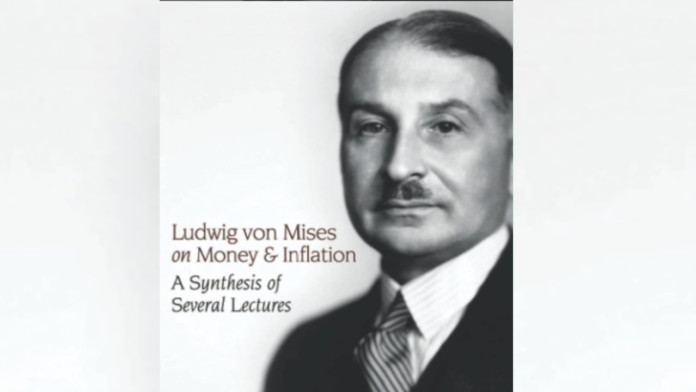Ludwig von Mises’ insights into the dynamics of money and inflation continue to be of significant relevance, and his work, encapsulated in “Ludwig von Mises on Money and Inflation: A Synthesis of Several Lectures,” offers an essential exploration of these topics. Compiled to guide readers through the intricacies of economic theory, this book synthesizes several of Mises’ lectures, presenting a cohesive narrative on how money management and inflation are interlinked.
Mises, a stalwart of the Austrian School of Economics, elaborates on the foundational principles that govern economic stability and growth. His discussions are rooted deeply in the belief that monetary policy and its implications on inflation are critical drivers of economic health. Through his meticulous examination of monetary functions and value, Mises provides a thorough critique of inflationary policies and their long-term effects on the economy.
One of the core themes of the book is the critique of the manipulation of money supply by central banks and its detrimental impact on ordinary economic functions. Mises argues that inflation, often seen as a tool to stimulate economic activity, can lead to severe consequences like price instability and loss of public confidence in currency. He advocates for a restrained approach to monetary expansion, emphasizing the benefits of a stable currency.
The book also challenges contemporary economic policies by dissecting historical economic crises and their linkage to flawed monetary policies. Mises uses empirical evidence to support his arguments, making a case for a more conservative and principled approach to economic planning. His rigorous analysis not only sheds light on the pitfalls of excessive inflation but also champions the cause of sound money.
For readers interested in the philosophical underpinnings of economic theory, Mises provides a compelling narrative on the ethical considerations of monetary manipulation. He questions the morality of inflating currency supply, subtly leading to wealth redistribution without explicit legislative approval. This ethical critique adds a layer of depth to his economic arguments, inviting readers to consider the broader implications of economic policies.
“Ludwig von Mises on Money and Inflation” serves as both a historical reflection and a modern guide. For policymakers, economists, and students of economic theory, this book offers insightful perspectives that are both educational and thought-provoking. It compels the audience to rethink conventional wisdom on money management and inflation, pushing towards policies that ensure long-term economic stability and integrity.
Mises’ work remains a crucial text for anyone looking to understand the complex mechanisms of monetary policy and its far-reaching effects. The synthesis of his lectures provides a clear, articulate, and persuasive argument for the importance of a well-regulated monetary system. This book not only educates but also encourages critical thinking and informed discussion among those who wish to engage deeply with economic issues.


